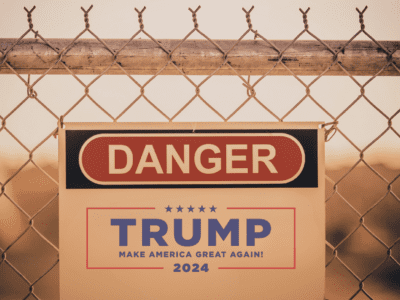Conservation deal just a sugar fix?

Cross-posted at CPRBlog
When government decides that private economic activity needs to be restricted in order to preserve some part of nature, there are two basic ways to get that result — by demanding cooperation through regulation or by buying it through economic incentives or outright purchase. The second approach is often politically easier, but environmentalists have long been skeptical of relying too heavily on it. Two major concerns have repeatedly been expressed. First, paying for conservation suffers from obvious fiscal constraints, especially in times of tight government budgets. Second, it may contribute to what economists call “moral hazard” — the tendency of those who anticipate a government bail-out to ignore the extent to which their activity may pose personal or societal risks.
A lengthy story about a conservation deal in the Everglades in this morning’s New York Times highlights a third concern: the private side might clean the government’s clock in negotiations. The article focuses on Florida’s plan to buy out US Sugar. The company is both a major landholder in the area between Lake Okechobee and Everglades National Park and, through runoff from its agricultural fields, a major contributor to the phosphorus pollution that is causing the decline of the native sawgrass ecosystem. In 2008, Florida announced a plan to buy out US Sugar over a six-year period. The company was to end its operations and convey 187,000 acres to the state in return for about $1.7 billion. The cost was to be paid by the South Florida Water Management District, which said publicly that it would not have to raise its taxes. Environmentalists, according to a Reuters story at the time, “raved.”
But now things don’t look so good. Florida has decided that it can only buy about 80,000 acres for now. It will hold an option on the rest, and US Sugar will stay in business. According to the Times, the scaled-down deal may not produce much in the way of conservation returns, but its costs will put other Everglades restoration projects at risk. But the Times story strongly suggests that even the original deal was a bad one for the state, despite having been reached at a time when US Sugar appeared to be on the ropes. Authors Don van Natta and Damien Cave explain:
Negotiations favored United States Sugar from the start, when the state accepted two outside firms’ appraisals of the company’s land that used figures from the height of the real estate market, according to documents.
When a “fairness opinion” commissioned by the state found that those appraisals had overvalued the land by $400 million, Florida officials orchestrated a public relations campaign to discredit the findings, internal e-mail showed. Appraisers from the Florida Department of Environmental Protection, which was required to sign off on the deal, were also cut out of the process after raising concerns, e-mail messages showed.
When it came time to decide which land to buy, state officials acknowledged that United States Sugar was, as one official put it during an interview, “pretty much in the driver’s seat.” The water district overseeing the restoration will end up with six large disconnected parcels under the current deal, including all of United States Sugar’s citrus groves.
State officials acknowledged that some of that land, which has been ravaged by canker, a plant disease, is useless for restoration.
They suggest that Governor Charlie Crist’s interest in reaching a quick deal to further his national political ambitions, and the fact that the governor’s chief of staff had come from (and has now returned to) the law firm that represents US Sugar, account for the bad deal.
Even without political chicanery, its tough for the government to do well in this kind of negotiation. Government negotiators often aren’t accustomed to the rough-and-tumble business world, and they typically lack the strong financial incentives of business negotiators to get the very best deal. Politically difficult as it may be, a regulatory approach can put government in a stronger position.
Of course, regulation is not a panacea. To the extent that regulatory provisions are negotiated (as they are, for example, in crafting habitat conservation plans under the Endangered Species Act), the same dynamics can operate. That’s why it’s a good thing that many regulatory provisions are not subject to negotiation. Under the Clean Water Act, for example, Florida must develop water quality standards that will protect the Everglades. Even when regulatory negotiation is permitted, it typically happens in a somewhat more public forum than do government real estate deals.
Another problem with regulation is that to the extent government controls enforcement efforts, regulatory hammers may prove illusory. That’s why its a good thing that environmental laws allow citizens to bring their own enforcement actions if the government is not stepping up. Even so, the process can be painfully slow, and require substantial resources. No wonder everyone grasps at negotiated deals when they promise to solve the problem more quickly.
The bottom line is that there are no easy answers in the Everglades. Citizen suits and EPA action seem finally to have forced Florida to set credible water quality standards. The federal courts had also ruled that the South Florida Water Management District’s Everglades pumps needed NPDES permits under the Clean Water Act, but the Bush administration’s EPA undercut that decision by issuing a Water Transfers Rule exempting most pumps from permitting. EPA is reportedly reconsidering that rule, but in the meantime even the strongest water quality standards won’t do much to help the Everglades.
There are other regulatory avenues that could be explored. The Property Clause of the Constitution gives the US extraordinary power to protect its lands, including the power to restrict activities on surrounding lands. As a matter of law, the US would have strong grounds to restrict agricultural pollution that is affecting Everglades National Park. But the US has shown little political stomach for pushing that authority, and citizens cannot force it.
Perhaps the best we can hope for is that dedicated regulators, backed by committed citizen groups, can combine regulation with negotiation. Credible threats to wield regulatory tools aggressively can bring private interests to the table, and can strengthen government’s negotiating position. But the key is that regulators have to actually be prepared to take the heat. That requires backing from the very top.







One Reply to “Conservation deal just a sugar fix?”
Comments are closed.